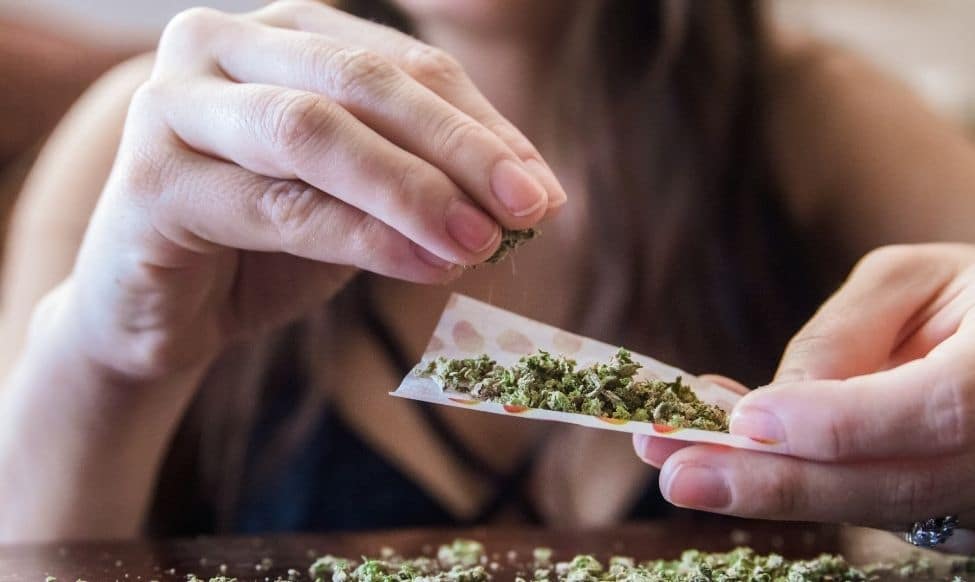With the legalization of recreational marijuana in New York State, employers and employees alike might be wondering to what extent an employer can tell employees to “Keep Off the Grass.”
Before we tackle employment-related issues raised by the legislation, here is a summary of the main provisions of the new law:
Permitted Use
- In New York State, adults 21 and over will be able to possess up to three ounces of marijuana but unable to sell it until a retail system is set up
- Adults 21 and over will be allowed to smoke marijuana in any public place where smoking is allowed
- Restrictions will be placed on smoking cannabis in restaurants, schools, and the workplace
- Eventually, adults 21 and over will be able to cultivate six plants for personal use at home
- Municipalities will be able to impose regulations and create restrictions such as banning the retail sale of marijuana
Criminal Regulation
- People with marijuana-related convictions that are no longer criminalized will have their records automatically expunged
- Police will not be allowed to use the smell of marijuana to justify vehicle searches
- Driving while under the influence of marijuana will still be illegal
Tax Structure
- Medical marijuana taxes will remain unchanged
- Recreational marijuana will have a 13% tax rate with 9% allocated to the state and 4% to localities
As New York State joins the 15 other states (as of this writing) that have legalized the adult use of marijuana, a major question is what the impact the new legislation will have on the workplace.
Can Employers Still Drug Test for Marijuana? How Does the Law Impact the Hiring Process?
Currently, even with the new legislation, there is no law that bans marijuana from drug testing in New York State as a whole. However, New York City has already showcased its less rigid stance on marijuana drug testing. As of May 2020, NYC banned most employers from requiring job applicants to submit to a marijuana drug test as a condition of employment with the exception of positions in law enforcement, transportation and construction. Now that marijuana is legal, it’s possible that New York State could follow NYC’s lead and ban marijuana testing as well.
While employers might still be able to drug test for marijuana, an amendment to Section 201-d of the New York Labor Law explains that employers may not refuse to hire, employ, discharge, or otherwise discriminate against someone who uses cannabis lawfully while off-duty and off-premises. Therefore, despite it being legal for employers to test for marijuana, a positive marijuana test does not necessarily equate to workplace “impairment.” Workplace “impairment” would permit an employer to take adverse action. The legislation defines being “impaired” by cannabis use when an employee “manifests specific articulable symptoms while working that decrease or lessen the employee’s performance of the duties or tasks of the employee’s job position.”
It is important to note that while New York has legalized the possession and use of recreational marijuana, under federal law, marijuana is still illegal. If that sounds confusing, that’s because it is. While the new law requires that employers follow state law when it comes to marijuana, it also provides that an employer is exempt from following the nondiscrimination provisions of the marijuana legislation if complying would result in the loss of a federal contract or federal funding.
Can Employers Control Employee Use of Marijuana Outside of Working Hours?
While the law on testing for marijuana in the workplace is still unsettled, employers will still be able to ban it from the workplace and use being high on the job as basis for termination. However, while employers can prohibit the use or possession of marijuana on-site or during work hours, they cannot control what an employee does or does not do outside of working hours. So employers cannot prohibit employees from smoking pot outside of working hours, nor can they discriminate against employees who do so.
What Kind of Workplace Policies Can Employers Set?
While some may welcome the scent of marijuana in the air at an outdoor concert, the same scent may not be as well received in the office. So employers should take advantage of the opportunity to update their employee handbooks and spell out the consequences of using marijuana during working hours – typically, in a manner that resembles the consequences of alcohol use. Similar to how an employer can set an alcohol-free policy where employees are not allowed to be intoxicated on the job, they can do the same for marijuana and prohibit being “impaired” by cannabis use. If an employer mandates a drug-free policy in their handbook, that means they might not only require that employees stay off the grass, but also keep it off of workplace premises.
Additionally, employers can set policies for marijuana usage during lunch and break times. Employers should clearly communicate with employees to ensure they are aware of their employer’s drug-related policies, as well as train and advise managers on the policy changes.
New York’s approach to navigating the legalization of marijuana will be a constantly evolving topic over the next several months and even years. If you have any questions about specific guidelines, situations, or need a policy revision for your business, please contact our Labor and Employment Department at (631) 738-9100.

